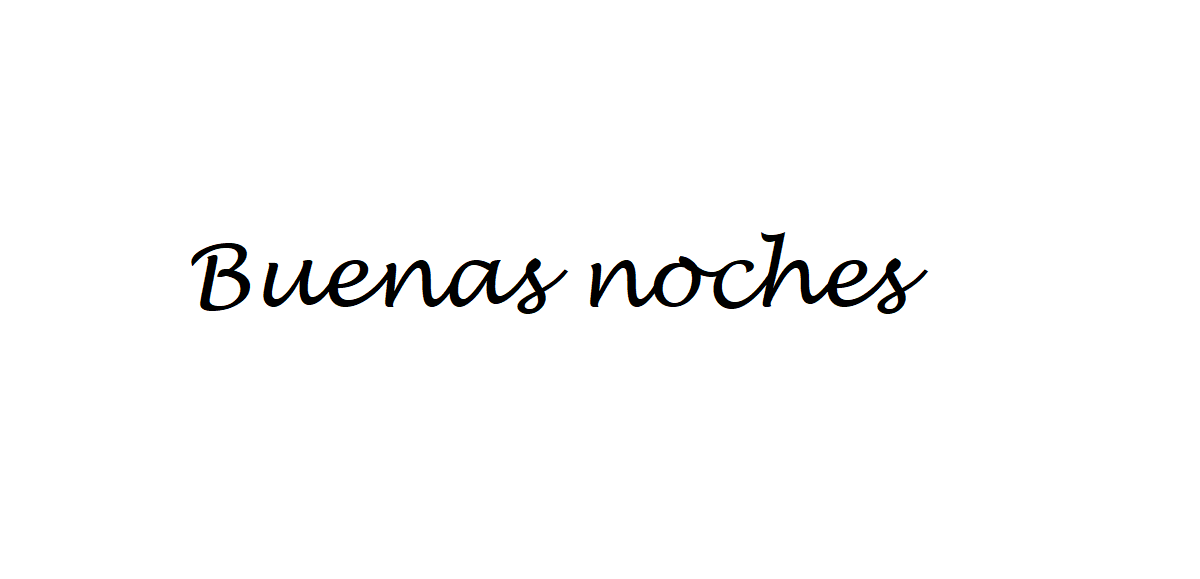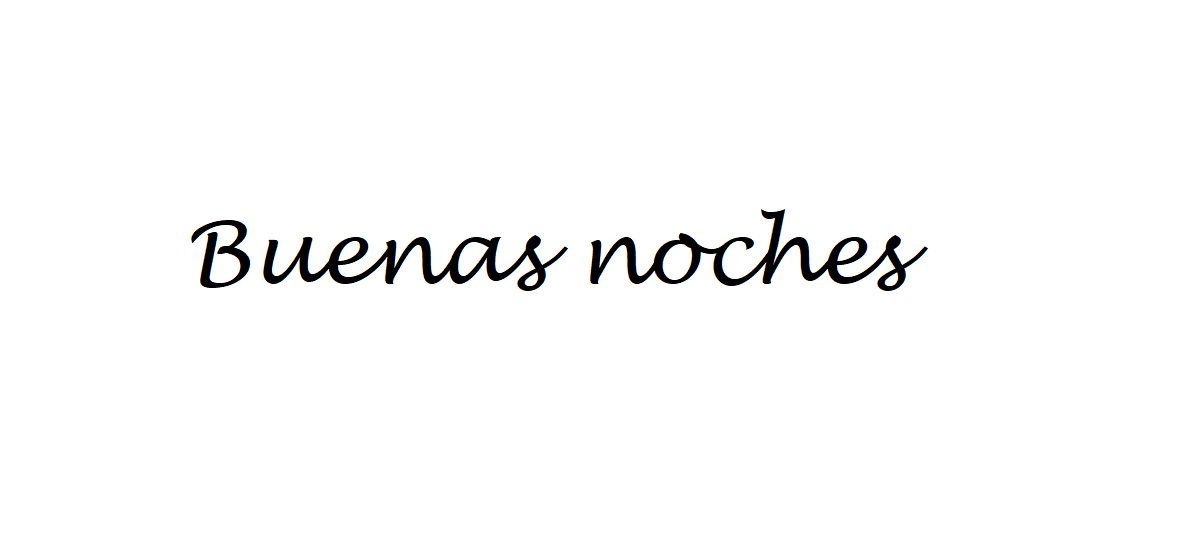If you plan on visiting a Spanish speaking country soon, it is important to learn how to say “Goodnight.” In fact, Spanish culture appreciates being able to greet someone politely at different times of the day. From buenos dias meaning good morning to buenas tardes meaning good afternoon, there is also a common phrase used for later in the night – buenas noches.

Buenas noches – Usually when ending activity for the day or late night, buenas noches is used to say “good night” in Spanish. Good night is often used to say goodbye at the end of the day or later on at night when people part ways for the rest of the night or evening. Good night may also be used when someone is going to bed.
What’s more, as a rule of thumb, you can say goodnight to someone you are separating for the rest of the day, anytime from 5 pm. It only means you are saying goodbye after closing for the day. As you continue to stay in the country, you will hear people saying buenas noches both during the evening and at night.
Examples of using the the word Goodnight in Spanish
1. Good evening, how are you? – Buenas noches ! ¿Cómo estás?
2. Have a good night – Que tengas una buena noche
3. I’ll see you tomorrow night – Te veré mañana por la noche
4. Sweet dreams tonight – Dulces sueños esta noche
5. Wishing you a peaceful night’s sleep – Que tus noches se llenen de dulces sueños
6. Don’t stay up too late tonight – No te quedes despierto demasiado tarde esta noche
7. Enjoy your evening – Disfruta tu velada
8. Goodnight sweetheart. – Buenas noches cariño
9. They all said goodnight and left for their home – Ellas dijeron buenas noches y se fueron a casa
10. She turned and said, Goodnight, Jose – Ella se volvió y dijo: Buenas noches, José
11. Santiago kissed Isabella goodnight – Santiago le dio un beso de buenas noches a Isabella
Situations on when to use the correct meaning of goodnight
The simplest way to say “goodnight” in Spanish is “buenas noches” (boo-EHN-ahs NOH-chays). This phrase can be used with friends, family members, or acquaintances. It is a polite yet informal way to end a conversation and expresses best wishes for restful sleep. If you want to add an extra layer of politeness or warmth, you may choose another phrase such as “que descanses bien” (kay deh-SKAHN-sehs bee-EHN). This translates into “that you rest well” but carries connotations that go beyond simple good wishes. It implies that someone cares enough about your wellbeing that they want you to have a peaceful night’s sleep.
In a formal situations, like speaking with an employer or someone older than yourself, it might be better suited to use the phrase “que tenga una buena noche” (kay TEHN-gah oo-NAH BWEH-nah NOHCH) meaning “have a good night”. This expression conveys respect while still wishing them pleasant dreams for the evening ahead.
In some parts of Latin America and Spain itself, people will often add additional expressions when saying goodbye at night time, particularly if they won’t see each other until morning. Phrases such as “hasta mañana” (AHS–tah mah–NYAH–nah), which means “until tomorrow”.
For close friends and family members who live together one might simply say “adios hasta mañana,” meaning ‘see ya tomorrow’.
For lovers you can use terms like mi amor (“my love”) or cariño (“sweetheart”) to give your goodbyes a sweeter touch. Saying phrases like buenas noches mi amor (“goodnight my love”) shows how much affection exists between two people.


 Sheep Bridge Hot Springs in Arizona
Sheep Bridge Hot Springs in Arizona